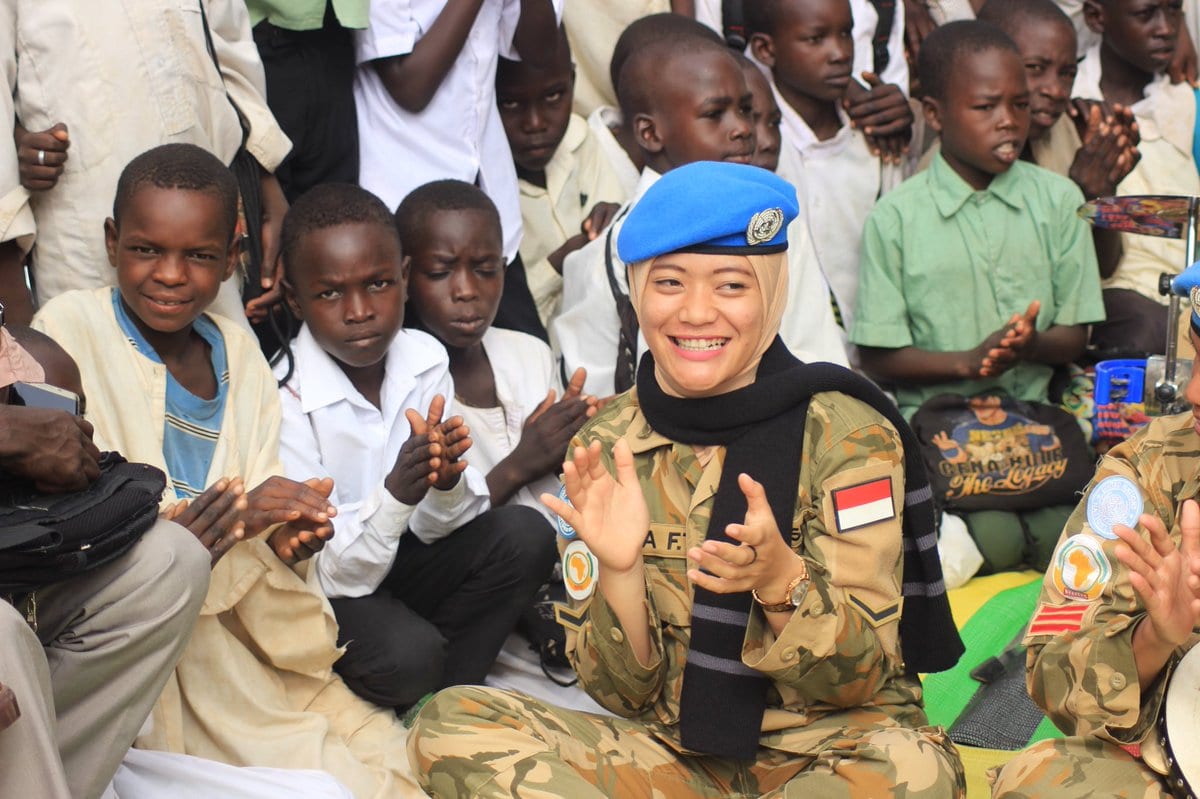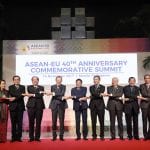ASEAN AND THE UN PEACEKEEPING OPERATIONS – International Day of UN Peacekeepers
Kevin Iskandar Putra
May 29th 2018 remarks the 70th Years of Service and Sacrifice of the UN Peacekeepers. Through the General Assembly Resolution 57/129 on the report of the Special Political and Decolonization Committee (Fourth Committee) adopted in its fifty-seventh session held 24 February 2003, the international community decided to dedicate one day to commemorate and honor the dedication and contribution of the UN blue helmet as a front line to ensure international peace and stability. These blue helmets were first deployed by the UN Security Council to ensure the monitoring process of the Israeli-Arab Countries Armistice Agreement on 29 May 1948.
As recorded by the United Nations, 3,700 UN peacekeepers have lost their lives in the battlefield since 1948. This number includes 134 in the year 2017. The UN Charter Chapter VIII governs the Regional Arrangements, asserting that “the existence of regional arrangements or agencies for dealing with such matters relating to the maintenance of international peace and security as are appropriate for regional action”. However, the utilization of such regional arrangements could also be taken with the authorization of the UNSC, according to the Article 53 (1) of the chapter.
Since its establishment in 1957, ASEAN, as a regional inter-governmental organization has been contributed greatly to the making of regional stability. The ASEAN Charter Article 1 (1), “to maintain and enhance peace, security and stability in the region” reflects a commitment made to contribute to the making of the UN Charter Art. 1 (1) to maintain international peace and security. Political-security cooperation ensuring peace and security, embedded in the Plan of Action of ASEAN and the UN (2016 – 2020) 1.1.4., emphasizes the intention to further cooperate with the UN to provide continued training assistance in peacekeeping to ASEAN, including training in humanitarian affairs and civil-military coordination, gender issues such as the role of women peacekeepers, health, safety and security arrangements, and support ASEAN’s efforts in strengthening the ASEAN Peacekeeping Centers Network, including through the sharing of lessons learned, best practices and capacity building.
Table 1: Contributors to UN Peacekeeping Operations by Country and Post
Police, UN Military Experts on Mission, Staff Officers and Troop (31/03/2018)
| Country | Police | UNMEM | Troops | Staff Officers | Total |
| Brunei Darussalam | 0 | 0 | 30 | 0 | 30 |
| Cambodia | 0 | 6 | 769 | 14 | 789 |
| Indonesia | 175 | 30 | 2,445 | 45 | 2,695 |
| Laos | – | – | – | – | – |
| Malaysia | 20 | 10 | 818 | 17 | 865 |
| Myanmar | 0 | 0 | 0 | 2 | 2 |
| Philippines | 0 | 10 | 0 | 0 | 10 |
| Singapore | – | – | – | – | – |
| Thailand | 8 | 9 | 0 | 5 | 22 |
| Viet Nam | 0 | 3 | 0 | 5 | 8 |
| Grand Total ASEAN | 203 | 68 | 4062 | 88 | 4421 |
| Grand Total World | 10,679 | 1,316 | 77,145 | 1,918 | 91,058 |
| Proportion | 1.2 % | 5 % | 5 % | 4.5 % | 4.8 % |
To date, ASEAN countries have contributed to peacekeeping missions that include police, UN Military Experts on Mission, Staff Officers and Troops. Per March 2018, the number of personnel deployed by ASEAN accounts up to 4,419 personnel to the UN PKO with 4,239 male and 180 female personnel. In this regard, Indonesia, Cambodia and Malaysia are the largest contributing countries measured by the number of mission and post. Such number shows the huge gap between men and women peacekeepers. The total number of the male peacekeepers are also significantly higher than that of female peacekeepers, comprising 86,723 men and 4,335 women.
Gender disparity in UNPKO is problematic because the role of women, in this regards, has not yet been considered seriously in peacekeeping process. As matter of fact, women in peacekeeping operations contribute positively to improve intelligence-gathering, deconstructing cultural and social biases in some conflicting areas, as well as breaking down the gender-based violence and exploitation. The milestones for women in PKO could be seen from the story where Major General Kristin Lund of Norway was deployed to Cyprus as the first female to serve as Force Commander in UN PKO; Gladys Ngwepekeum Nkeh in the Central African Republic, as well as Major Bettina Stelzer’s in South Sudan.
Increasing the deployment of women is an important agenda for the United Nations. It is believed that by incorporating women in peacekeeping operations the key to reduce the root causes of sexual exploitation and abuse by UN forces will be found. Based on Operational Effect and Women Peacekeepers: Addressing the Gender Imbalance (as of 30 March 2018) countries in ASEAN that have contributed to 14% or more women peacekeepers are only Philippines and Thailand. Viet Nam, Cambodia, and Indonesia belong to the countries with 0.1% or more contribution of women peacekeeping. Whereas, Malaysia, Myanmar, Brunei Darussalam are countries in ASEAN that do not contribute to women peacekeeping.
Initially, the agenda to reduce the gender gap in women peacekeepers was mentioned in the reports by the former Secretary-General Kofi Annan Bulletin 2003 and the Zeid Report, A Comprehensive Strategy to Eliminate Future Sexual Exploitation and Abuse in the United Nations Peacekeeping Operations, published by the UN High Commissioner for Human Rights.
Despite the contributions of Indonesia, Malaysia, and Cambodia, ASEAN is nowhere near to be a model for a regional organization that is significant in its contribution to the peacekeeping mission. In order to go to that direction, countries such as Singapore and Laos should be encouraged to submit their report on their contribution in Peacekeeping Operation to evaluate their supports in terms of human resources and funding.
Indonesia, through its Foreign Minister Retno L. P. Marsudi has pledged to send four thousand peacekeeping troops to overseas UN missions by 2019. This reflects that another effort to improve the role of one ASEAN country is in the making. However, this would not constitute as a large contribution if other ASEAN countries has no willingness to follow Indonesia’s effort to increase its contribution to the peacekeeping mission.
In line with the expected role of PKO such as to monitor the peace process in two disputing parties, ceasefires and the withdrawal of troops to reduce the tensions and prevent the recurrence of hostilities, ASEAN should also give its paramount focus in the maintenance of international peace and security. Should the international community aim to realize its vision towards stability, a greater commitment should be put in the conflict prevention, cooperation with regional body like ASEAN, as well as allocating more money to fund and deploy peace mission. These collective efforts combined will reflect the efforts to materialize the three pillars of the UN systems, namely peace and security, development, and human rights. The road towards stability will be a long and winding, but the gap towards its end-goal could be narrowed by shedding more lights in improving the effectiveness of the Peacekeeping Operations.
The writer is a Research Intern at the ASEAN Studies Center Universitas Gadjah Mada





